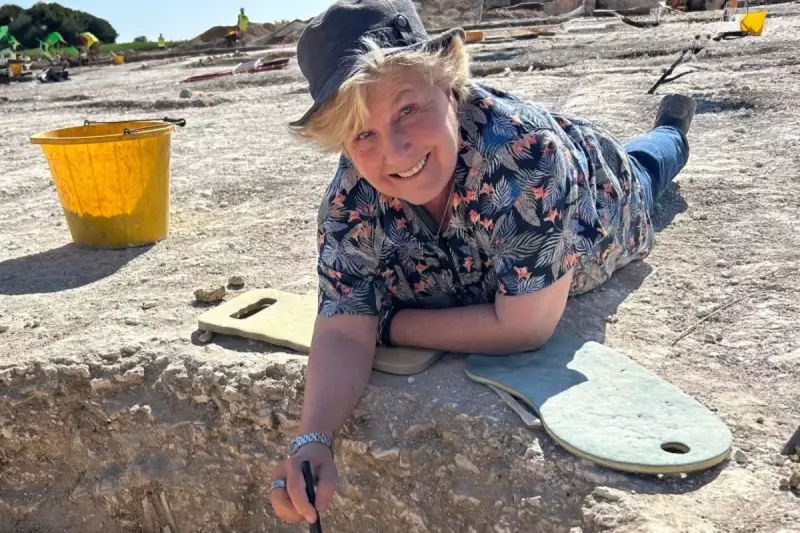
In a remarkable archaeological discovery that's rewriting Dorset's ancient history, a team led by Mikkeline Toksvig - daughter of broadcaster Sandi Toksvig - has uncovered a complete Iron Age settlement that paints a vivid picture of life in Britain over 2,000 years ago.
The Student Who Found a Village
Mikkeline, an archaeology student at Bournemouth University, directed excavations that revealed an entire Iron Age village near Winterborne Kingston. The site contains extraordinary finds including roundhouses, storage pits, and human remains that provide unprecedented insight into the Durotriges tribe who inhabited the region before the Roman conquest.
'This discovery changes everything we thought we knew about Iron Age Dorset,' said Dr. Miles Russell, the academic supervisor. 'The preservation is exceptional, allowing us to reconstruct daily life in ways we never imagined possible.'
A Treasure Trove of Ancient Life
Among the most significant finds are:
- Complete roundhouse structures with intact floor levels
- Storage pits containing preserved seeds and animal bones
- Human burials revealing health and dietary patterns
- Pottery and tools showing sophisticated craftsmanship
- Evidence of metalworking and textile production
The settlement appears to have been occupied for several centuries, showing continuous development and adaptation by the Durotriges people.
Family Connections to History
While Sandi Toksvig is best known for her television career and co-founding the Women's Equality Party, she's long had an interest in archaeology. Her daughter's academic pursuit has now yielded one of the most important Iron Age discoveries in recent memory.
'I'm incredibly proud of what Mikkeline and her team have achieved,' Sandi Toksvig commented. 'To uncover such a complete picture of our ancient past is every archaeologist's dream.'
What This Means for British History
The discovery challenges previous assumptions about Iron Age settlements in southern Britain. The Durotriges were known from Roman accounts as a powerful tribe, but this excavation provides the first comprehensive evidence of their domestic life and community organisation.
Dr. Russell emphasised the significance: 'We're not just looking at stones and bones - we're seeing how people lived, worked, and died. This is social history written in the soil.'
The findings will be featured in the upcoming series 'Digging for Britain' on BBC Two, allowing the public to share in this extraordinary window into ancient Britain.





